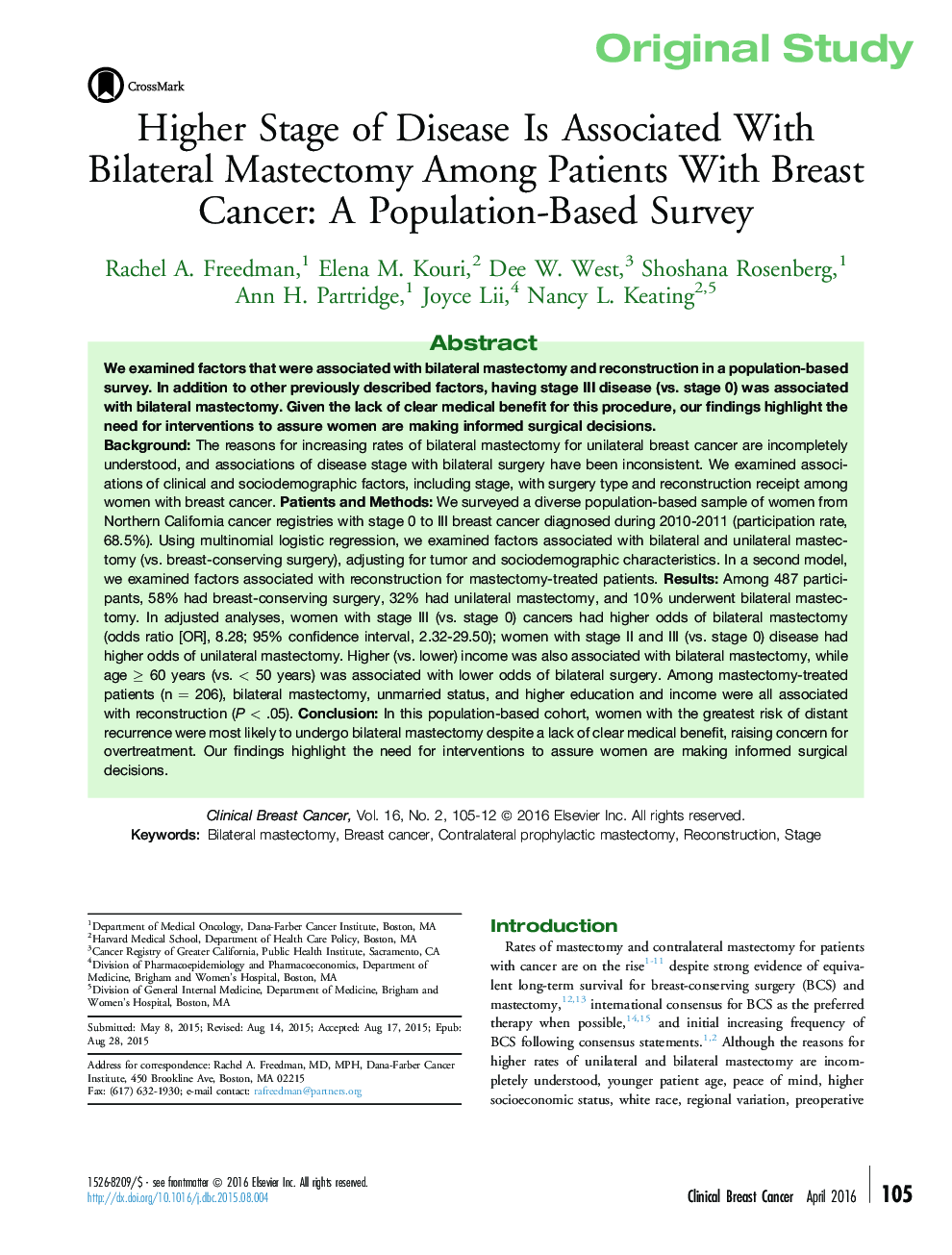| کد مقاله | کد نشریه | سال انتشار | مقاله انگلیسی | نسخه تمام متن |
|---|---|---|---|---|
| 2750490 | 1149339 | 2016 | 8 صفحه PDF | دانلود رایگان |
BackgroundThe reasons for increasing rates of bilateral mastectomy for unilateral breast cancer are incompletely understood, and associations of disease stage with bilateral surgery have been inconsistent. We examined associations of clinical and sociodemographic factors, including stage, with surgery type and reconstruction receipt among women with breast cancer.Patients and MethodsWe surveyed a diverse population-based sample of women from Northern California cancer registries with stage 0 to III breast cancer diagnosed during 2010-2011 (participation rate, 68.5%). Using multinomial logistic regression, we examined factors associated with bilateral and unilateral mastectomy (vs. breast-conserving surgery), adjusting for tumor and sociodemographic characteristics. In a second model, we examined factors associated with reconstruction for mastectomy-treated patients.ResultsAmong 487 participants, 58% had breast-conserving surgery, 32% had unilateral mastectomy, and 10% underwent bilateral mastectomy. In adjusted analyses, women with stage III (vs. stage 0) cancers had higher odds of bilateral mastectomy (odds ratio [OR], 8.28; 95% confidence interval, 2.32-29.50); women with stage II and III (vs. stage 0) disease had higher odds of unilateral mastectomy. Higher (vs. lower) income was also associated with bilateral mastectomy, while age ≥ 60 years (vs. < 50 years) was associated with lower odds of bilateral surgery. Among mastectomy-treated patients (n = 206), bilateral mastectomy, unmarried status, and higher education and income were all associated with reconstruction (P < .05).ConclusionIn this population-based cohort, women with the greatest risk of distant recurrence were most likely to undergo bilateral mastectomy despite a lack of clear medical benefit, raising concern for overtreatment. Our findings highlight the need for interventions to assure women are making informed surgical decisions.
Journal: Clinical Breast Cancer - Volume 16, Issue 2, April 2016, Pages 105–112
